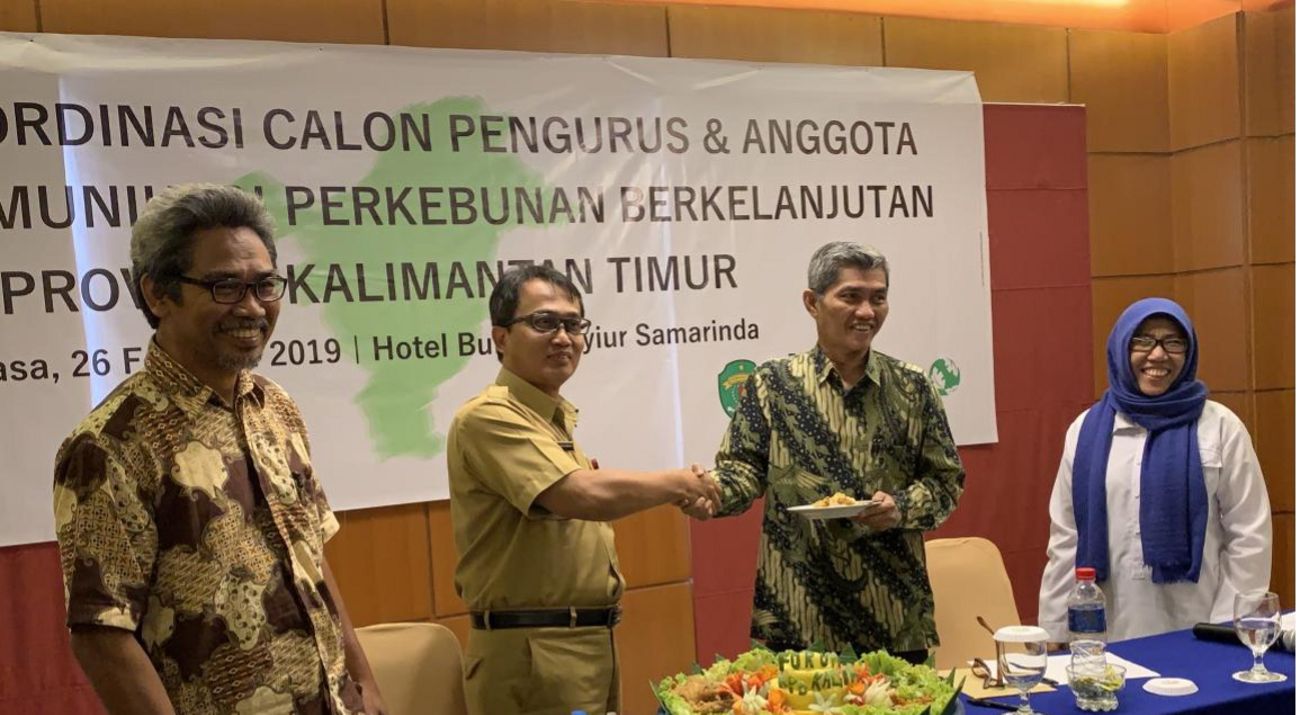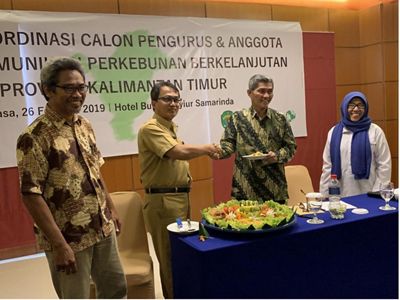
Provincial Communication Forum on Sustainable Estate Crop Established in East Kalimantan
The East Kalimantan administration has declared plantation as its primary sector to support the region’s economy, following sustainable and low-emission development principles. This effort aims to bolster the acceleration of green economy transformation in East Kalimantan as per the “Kaltim Hijau” (Green East Kalimantan) codes, which the local government declared in 2010.
In 2018, the local government cemented its roadmap towards green economy transformation in the development sector by issuing the East Kalimantan Bylaw (Perda) No. 7 on Sustainable Plantation Development. One of its mandates was founding a Provincial Communication Forum on Sustainable Estate Crop (FPKB), a cross-sectoral communication forum involving the government, private sector, academia, and the public.

In the same year, the East Kalimantan government issued the Sustainable Plantation Bylaw, and the 2018 Gubernatorial Decree No. 52 consolidated the establishment of the East Kalimantan FKPB. Their main objectives are that this forum shall support acceleration strategies for sustainable plantation development and resolve multisectoral plantation issues in the region. Three Working Groups (Pokja) supported FKPB in conducting its role. The Sustainable Plantation Management Group, Environment and Social Working Group, and Productivity Working Group.
The members of the Working Group consisted of several of East Kalimantan’s regional government offices (OPD), the Indonesian Oil Palm Entrepreneurs Association (GAPKI), the Indonesian Oil Palm Farmers Association (APKASINDO), the Khatulistiwa Conservation Foundation (YASIWA), the Human Biosphere Foundation (Bioma), PT Pupuk Kaltim, Bank Kaltimtara, Bank Negara Indonesia, Bank Indonesia, Bank Rakyat Indonesia, the Regional Council for Climate Change (DDPI), and many other parties.
The 2019 Gubernatorial Decree No. 52 on the Appointment of East Kalimantan Forum KPB’s Executives and Members became the basis for inaugurating the administrators at FKPB for office term 2019-2022. One of the Forum’s flagship activities was organising BINGKA KALTIM (East Kalimantan Sustainable Plantation Commodity Talk) online seminar series, which until March 2022, has taken place seven times.
Nevertheless, with the COVID-19 pandemic that has hit since 2020, the FKPB working groups have only taken less-than-optimal steps in conducting their functions. As a result, training, meetings, and other activities have become limited; however, FKPB must secure sustainable funding sources. On the other hand, despite facing many challenges, the Forum has achieved several outputs, namely activities such as thematic discussion, training, and several writings.
Technical guidance activities that had successfully proceeded during the 2020-2022 period were: mapping pioneering activities for issuing Registration Certificate of Plantation Business for Cultivation (STD-B) in Paser District and mapping pioneering activities of STD-B issuance in East Kutai District. Followed with three facilitating activities for plantation business partnership in Paser; updating High Conservation Value (ANKT) plantation data and discussion on corporation-based plantation area reporting in East Kalimantan; campaigning and establishing Forum KPB in East Kutai. Lastly was the composition of a policy brief on holding a sustainable oil palm certification in East Kalimantan.
The establishment of the Forum garnered full support from the following institutions and governments with a vision for sustainable plantation in East Kalimantan. Namely, the East Kalimantan Plantation Office, Yayasan Konservasi Alam Nusantara (YKAN), and the German Agency for International Cooperation (Deutsche Gesellschaft fur Internationale Zusammenarbeit/GIZ). The institutions, as mentioned earlier, combined their efforts to support the material and technological accelerations towards achieving the Sustainable Plantation Development Bylaw’s mandates.

